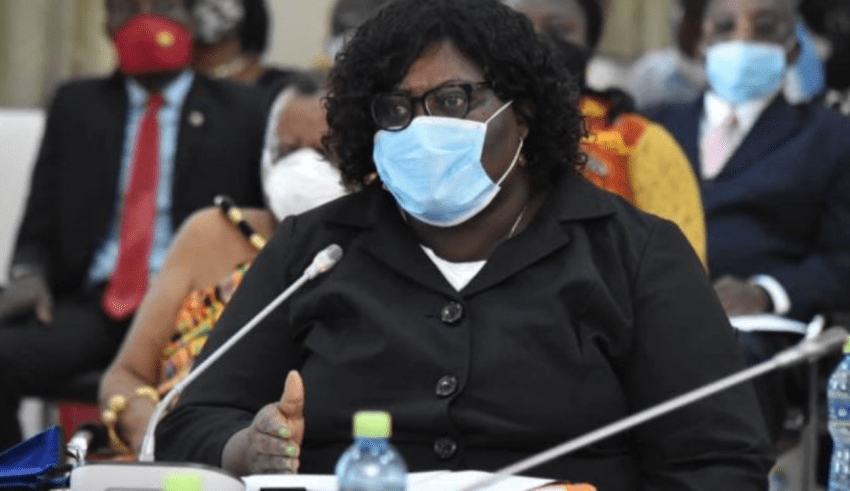
A Supreme Court Justice Nominee, Prof. Henrietta Mensa-Bonsu has broken her silence on the work that was done by the Justice Emile Short Commission that probed the Ayawaso West Wuogon by-election violence.
The government through its White Paper rejected most of the recommendations made by the fact-finding commission.
Government argued that the report failed to address the core terms of reference of the Commission hence its rejection of some of the recommendations.
While answering questions during her vetting today, (Tuesday, 12th May 2020 ] Prof. Henrietta Mensa-Bonsu, said although she had wished government would have accepted and implemented the report, its implementation lies within the remit of government.
“When you serve on a Commission to advise the President, you are guided by law and the rule says when you hand in your report, you are functus officio. So it’s not your duty to go chasing people to implement it. It becomes a property that Members of Parliament like you should follow up and not the Commission because it does not exist anymore and for example when judges take a decision in the court, the judge may have really sweated over the decision and it goes to appeal and it is reversed, the judge does not go on a press conference to complain.”
“When you give advice, you hope that it will be taken but what I know of advice is that those who want it do not get it and those who need it, don’t want it,” she added.
Why the Commission of Inquiry was established
During the by-election at the Ayawaso West Wuogon constituency on January 31, 2019, some National Security Operatives fired gunshots at the polling centre at La Bawaleshie, injuring about six persons believed to be NDC supporters.
A Commission of Inquiry was subsequently established by President Nana Akufo-Addo, on February 8, 2019, to probe the circumstances of and establish the facts leading to the events of the associated violence in the constituency.
The Commission was chaired by the former Commissioner for the Commission on Human Rights and Administrative Justice (CHRAJ), Justice Emile Short.
It interviewed over 20 witnesses and persons of interest over a three-week period.
The hierarchy of national security in Ghana made appearances before the Commission over the course of the hearing amid the reports of abuse of power by National Security Personnel.
The report which was submitted in March 2019 was published in accordance with the Constitution in September 2019 together with the government’s White Paper.
Why did government reject recommendations
According to the White Paper, some of the recommendations made by the Commission were not compelling enough for the government to act on.
One of the many rejected recommendations included the government disagreeing to the prosecution of Mohammed Sulemana, the SWAT officer seen on camera assaulting the Ningo-Prampram MP, Sam George as suggested by the Commission.
The government in the Paper argued that the facts presented by the Commission supported “a valid defence of provocation for the said assault [by Mohammed Sulemana].”
It was also advised by the Commission that the SWAT commander, DSP Samuel Kojo Azugu, who headed the unit at the centre of police brutality accusations, be removed from his post and reassigned by the Inspector General of Police.
The government, however, said it had referred the recommendations to the IGP “for his consideration.”
Source: citinewsroom.com














